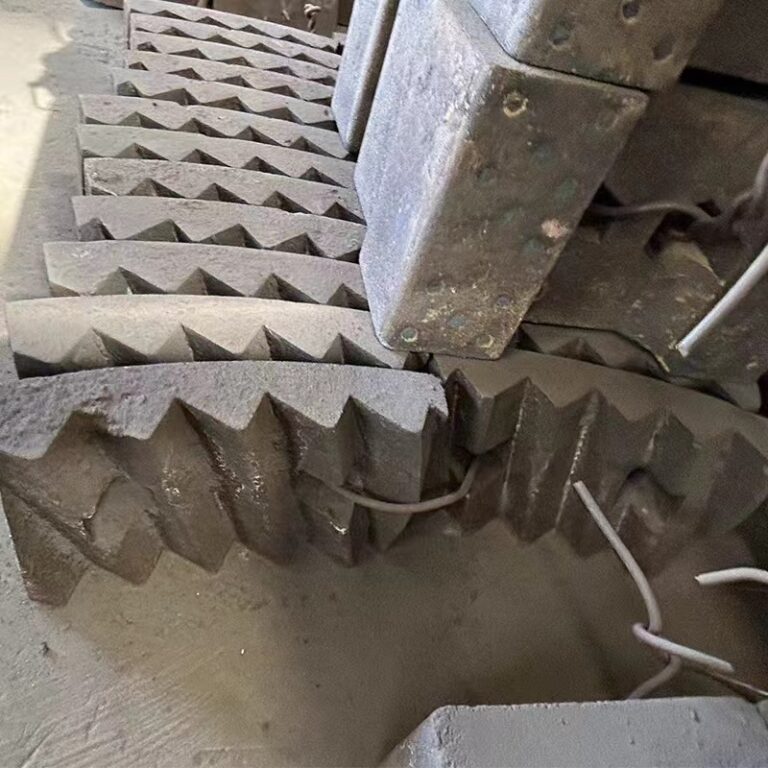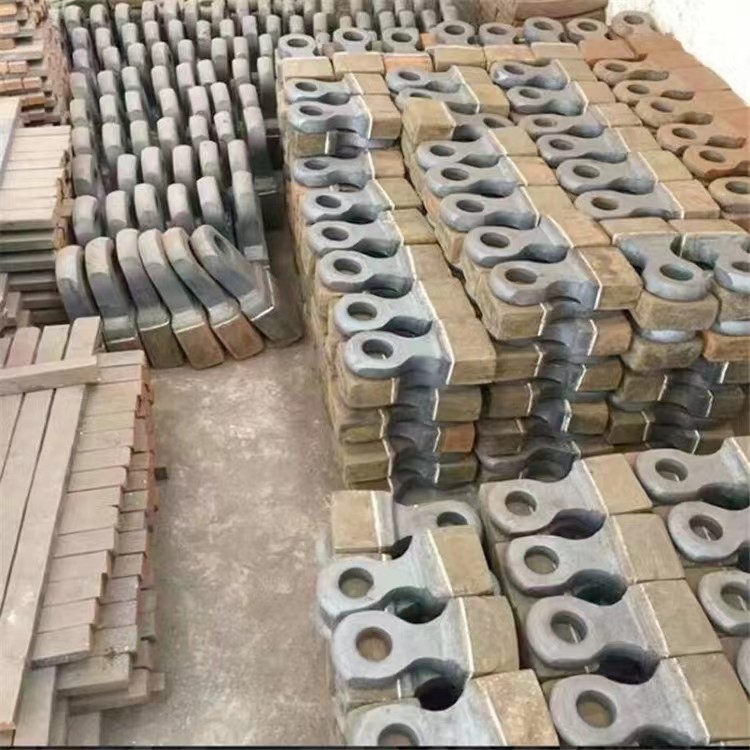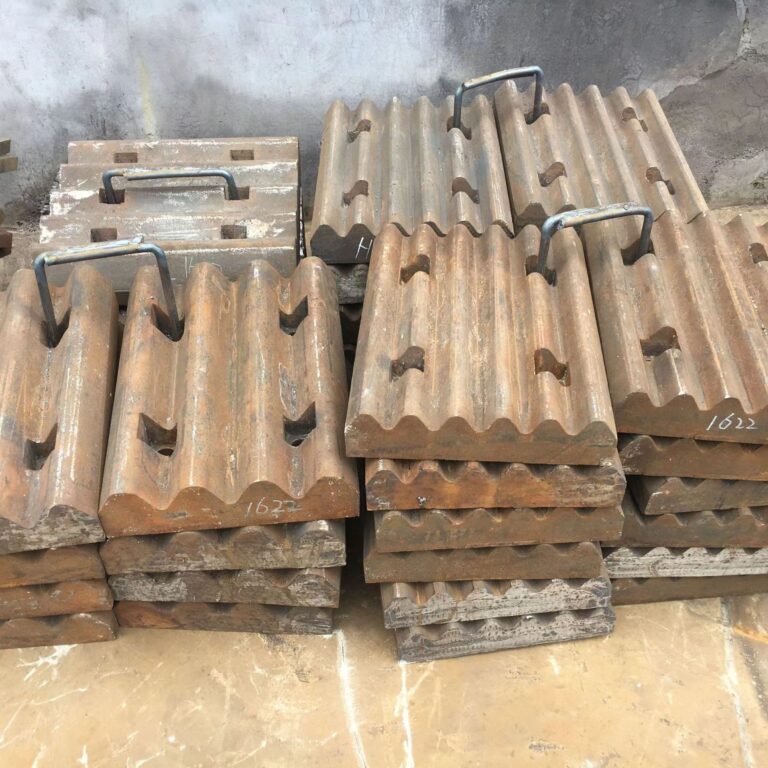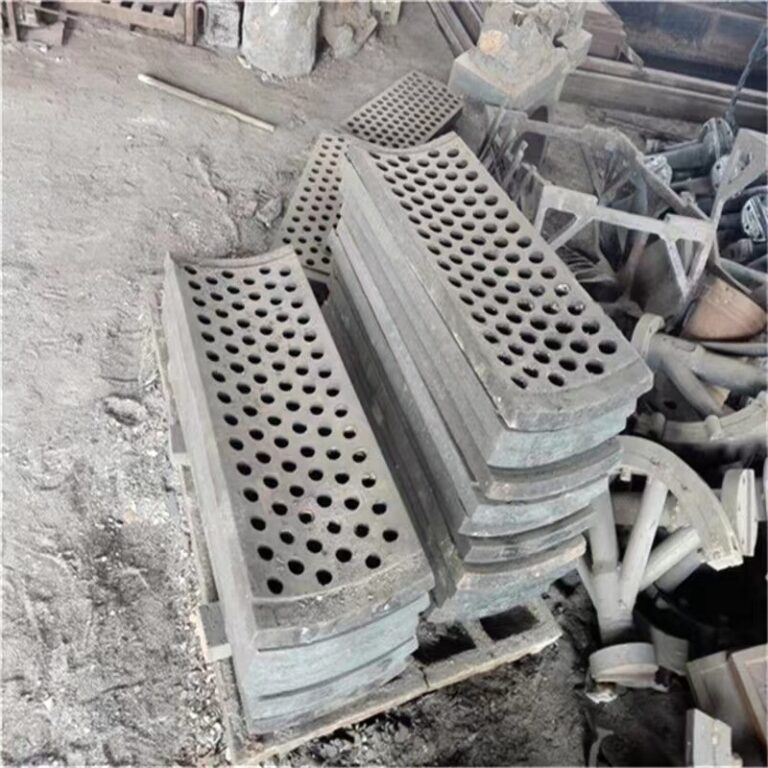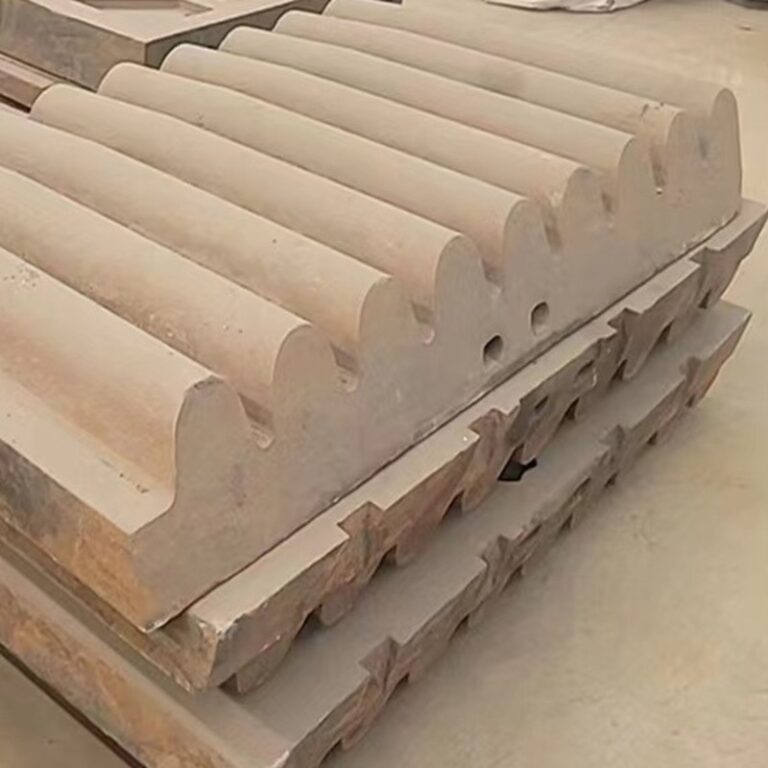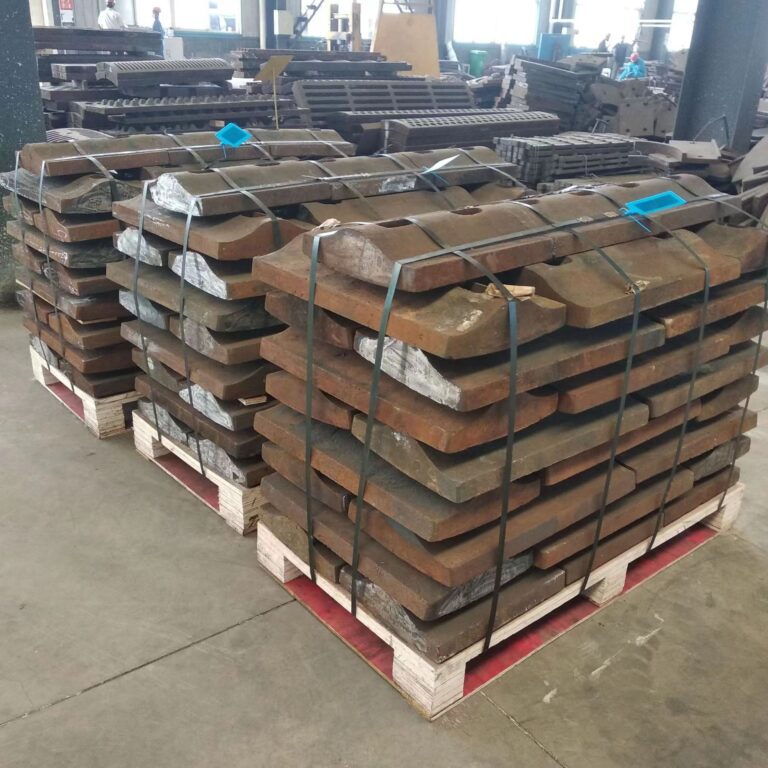Custom Crusher Casting
Custom crusher casting is a specialized manufacturing process that creates unique wear parts for crushing equipment based on specific operational requirements. Unlike standard off-the-shelf components, these castings are engineered to match exact specifications for individual crushing applications. The process involves creating molds tailored to specific crusher models and operating conditions, resulting in parts that deliver superior performance and longevity in demanding environments.
Why work with a custom Crusher casting company like us
Customized solutions
24/7 customer service
Product Inspection
Fast delivery
What is Custom Crusher Casting
Custom crusher casting involves designing and manufacturing crusher wear parts that are specifically tailored to meet unique operational needs. These castings go beyond standard specifications to address particular challenges in crushing operations.
The process starts with analyzing the specific crushing application, including material types, throughput requirements, and operating conditions. Engineers then design castings with optimized profiles, material compositions, and wear characteristics.
Custom castings can include modifications to standard designs such as altered tooth profiles, specialized alloy compositions, or unique geometric features. These modifications help solve specific problems like premature wear, poor material flow, or inadequate crushing performance.
Materials in Custom Crusher Casting
The choice of material significantly impacts the performance and lifespan of crusher castings. Here are the primary materials used:
• Manganese steel – The most common material, offering excellent work-hardening properties and impact resistance. Available in various grades from 14% to 24% manganese content.
• Chrome alloys – Provide superior abrasion resistance for handling highly abrasive materials. Chrome content typically ranges from 15% to 30%.
• Martensitic steels – Offer a balance between hardness and toughness. Ideal for medium-impact, high-abrasion applications.
• Composite materials – Combine different alloys or include ceramic inserts for extreme wear conditions. These provide targeted wear resistance in specific areas.
• High-chrome iron – Delivers exceptional hardness and wear resistance. Best suited for low-impact, high-abrasion environments.
Benefits of Using a Custom Crusher Casting Over Standard Options
Custom crusher castings offer several advantages that justify their higher initial investment:
• Extended wear life – Optimized designs and materials can double or triple the lifespan compared to standard parts. This reduces replacement frequency and associated downtime.
• Improved crushing efficiency – Custom profiles ensure optimal material flow and crushing action. This leads to better product quality and higher throughput.
• Reduced operating costs – Longer wear life and improved efficiency translate to lower cost per ton of material processed. Maintenance intervals are also extended.
• Application-specific solutions – Address unique challenges like sticky materials, oversized feed, or extreme wear patterns. Standard parts often fail to handle these conditions effectively.
• Better material utilization – Custom designs can incorporate wear indicators and optimize material distribution. This ensures maximum use of the casting before replacement.
When Should You Consider Using a Custom Crusher Casting
Several situations warrant the investment in custom crusher castings:
• Extreme wear conditions – When standard parts wear out prematurely due to highly abrasive or corrosive materials. Custom alloys can significantly extend service life.
• Unique feed materials – Processing materials with unusual characteristics like high clay content, extreme hardness variations, or chemical properties that attack standard alloys.
• Production bottlenecks – When crusher performance limits overall plant throughput. Custom designs can increase capacity without replacing the entire crusher.
• Frequent failures – Experiencing repeated failures in specific areas of standard castings. Custom solutions can reinforce weak points or modify designs to eliminate failure modes.
• Special product requirements – Needing specific output sizes or shapes that standard castings cannot produce efficiently. Custom profiles ensure desired product characteristics.
Examples of Custom Crusher Casting
Real-world applications demonstrate the versatility of custom crusher castings:
• Mining jaw plates – Custom tooth profiles designed for specific ore types, incorporating variable pitch patterns for optimal grip and reduced slippage on hard rock applications.
• Cone crusher mantles – Modified with thicker sections in high-wear areas and specialized alloys for processing abrasive minerals like granite or quartzite.
• Impact crusher blow bars – Featuring ceramic inserts or specialized chrome content for recycling applications where rebar and concrete create extreme wear conditions.
• Gyratory crusher concaves – Engineered with progressive cavity designs to handle varying feed sizes while maintaining consistent throughput in large mining operations.
• Hammer mill components – Custom hammers with carbide tips or specialized geometries for specific agricultural or industrial applications requiring precise particle size reduction.
How to Choose the Right Custom Crusher Casting for Your Application
Selecting the optimal custom casting requires systematic evaluation of multiple factors:
• Analyze current performance – Document wear patterns, failure modes, and replacement frequency of existing parts. This baseline data guides design improvements.
• Define material characteristics – Understand feed material properties including hardness, abrasiveness, moisture content, and chemical composition. These factors determine appropriate alloy selection.
• Establish performance goals – Set clear objectives for wear life, throughput, product quality, and operating costs. Custom designs should address specific improvement targets.
• Consider operating conditions – Evaluate factors like feed size variation, crusher settings, and operational practices. Design modifications must accommodate real-world conditions.
• Work with experienced suppliers – Partner with foundries that have proven expertise in crusher castings. They can provide valuable design recommendations and material selection guidance.
• Calculate total cost of ownership – Compare initial investment against projected savings from extended wear life and improved performance. Custom castings often provide superior long-term value despite higher upfront costs.
